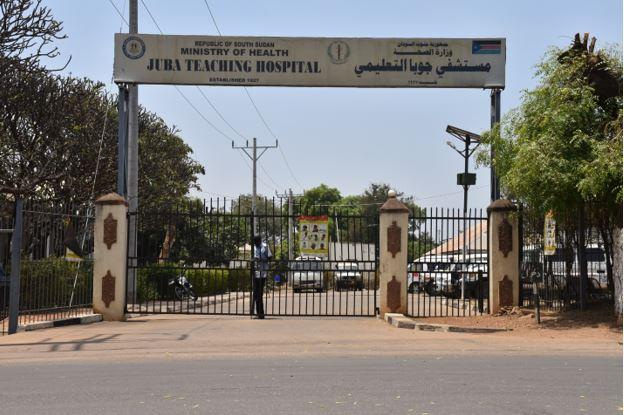Africa-Press – South-Sudan. A biting water shortage in the country is threatening to shut down labour wards in Juba, as health attendants lament that the situation is worsening every day.At the Juba Teaching Hospital, a midwife who spoke to The City Review on condition of anonymity described the pathetic situation they are going through trying to deliver babies without water.“You find midwives are working, but there is no water, even for cleaning equipment. “You know, after every procedure you are supposed to wash yourself, but now there is no water, no sanitiser, even cleaning the equipment becomes a problem; mothers want to use water, but there is nowhere they can find it, that is a big problem in the hospital,” the midwife lamented.
According to the World Health Organisation, adequate water, sanitation, and hygiene (WASH) are critical for providing safe, people-centric health services and safeguarding people’s dignity.
In the context of universal health coverage, water is a critical component of quality health care. Without reliable access to water, quality health care is impossible to provide.
Speaking to The City Review, this midwife expressed concern that the shortage of water is also putting them at risk of contracting COVID-19 and other infections.
“We have raised this complaint several times and there is nothing we can do about it now. The only thing we can do is buy your own sanitiser [so that] after every procedure you clean your hands with it.”
There is a scarcity of reliable data on the provision of WASH services in healthcare facilities in South Sudan. Apart from this, midwives have to contend with the problem of frequent power outages that hamper their quest to deliver services.
Child deaths
The City Review understands that some midwives have continued to deliver babies using mobile phone torches. “The midwives have to use torches for delivery and the premature babies sometimes die because when the power goes off, they are in oxygen, oxygen goes off and maybe the power comes after one hour, and you find those in dangerous condition dying,” she lamented.
With all the hurdles they have to endure to deliver babies safely, a midwife in South Sudan earns a paltry SSP3,000 per month. Health workers are calling for an urgent intervention by the government for better working conditions.
Recently, Juba Teaching Hospital Medical Director, Dr Maker Wel, said the hospital was struggling to keep power supplies constant ‘for the sake of the poor people’.
He said that the hospital spends SSP150,000 per day on electricity, accumulating to about SSP4 million per month. The money is acquired from the private wing of the hospital where patients pay for the medical services.
“We have no budget yet and we can’t close the hospital because we don’t have a budget,” he said.” That’s why we have introduced something called cost-sharing to get a little bit from those who can pay, to cover for those who can’t pay.”
For More News And Analysis About South-Sudan Follow Africa-Press






